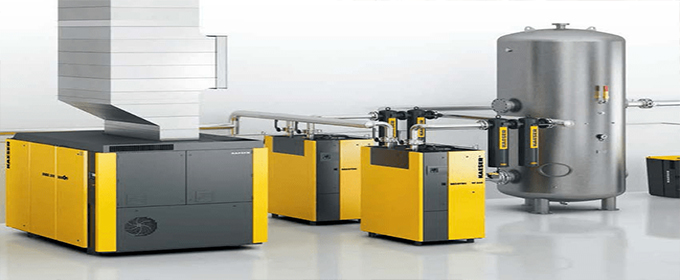Compressor
Enhancing Compressor Performance with Variable Frequency Drives (VFDs)
Introduction
Variable Frequency Drives (VFDs) play a pivotal role in optimizing compressor operations across various industries. By providing precise control over motor speed and torque, VFDs enhance the efficiency, reliability, and lifespan of compressors, leading to significant cost savings and improved performance.
Benefits of VFDs in Compressor Systems
- Energy Efficiency: VFDs adjust the compressor motor speed to match the demand, leading to substantial energy savings. This is particularly beneficial in applications with variable load requirements.
- Improved Process Control: VFDs offer precise control over the motor’s speed and torque, ensuring consistent pressure and flow rates, which enhances the overall process quality.
- Extended Equipment Life: Smooth start and stop operations provided by VFDs reduce mechanical and electrical stress on the compressor, extending its operational lifespan and reducing downtime.
- Operational Flexibility: VFDs allow for quick adjustments to motor speeds, enabling the compressor to adapt to varying demand without manual intervention.
- Reduced Maintenance Costs: By monitoring motor performance, VFDs can predict maintenance needs, helping to identify and address issues before they lead to equipment failure.

Applications of VFDs in Compressor Systems
- Air Compressors: VFDs control the speed of air compressors used in industrial applications, ensuring efficient and consistent air supply while reducing energy consumption.
- Refrigeration Compressors: In refrigeration systems, VFDs regulate the compressor speed to match cooling demand, improving energy efficiency and maintaining precise temperature control.
- HVAC Systems: VFDs optimize the performance of compressors in HVAC systems, ensuring efficient heating and cooling while adapting to varying load conditions.
- Process Gas Compressors: VFDs control the speed of process gas compressors used in chemical, petrochemical, and other industrial processes, ensuring consistent gas flow and pressure.
- Natural Gas Compressors: In natural gas compression applications, VFDs provide precise control over compressor speed, enhancing operational efficiency and reducing energy costs.
Choosing the Right VFD for Compressor Applications
When selecting a VFD for compressor systems, consider the following factors:
- Motor Compatibility: Ensure the VFD is compatible with the type and specifications of the compressor motor.
- Load Requirements: Choose a VFD that can handle the variable load demands typical in compressor applications, including peak loads.
- Control Features: Look for VFDs with advanced control features such as torque control, speed synchronization, and pressure regulation.
- Environment: Consider the operating environment, including temperature, humidity, and exposure to dust or corrosive substances. Select VFDs with appropriate protection ratings.
- Connectivity: Ensure the VFD can integrate with existing control systems and has capabilities for remote monitoring and diagnostics.
Implementation Considerations
- Proper Sizing: Correctly size the VFD to match the motor and application requirements to avoid overloading or underutilization.
- Harmonics and Interference: Address potential issues related to harmonics and electromagnetic interference (EMI) by using filters and shielding as needed.
- Cooling and Ventilation: Ensure adequate cooling and ventilation for the VFD to prevent overheating and ensure reliable operation.
- Training and Support: Provide training for operators and maintenance personnel on VFD operation, troubleshooting, and maintenance.
Example System Configuration
A typical compressor system with VFD includes:
- Compressor: An air, refrigeration, HVAC, process gas, or natural gas compressor.
- VFD: To regulate the speed and torque of the compressor motor based on the demand.
- Controller: Optional, for additional monitoring and control features.
- Sensors: To monitor parameters such as pressure, temperature, and flow rate, providing feedback to the VFD for optimal control.
Conclusion
VFDs significantly enhance the performance and efficiency of compressor systems, making them an essential component in modern industrial applications. By integrating VFDs, compressor systems can achieve greater operational flexibility, reliability, and energy efficiency, leading to reduced operational costs and improved process quality.
